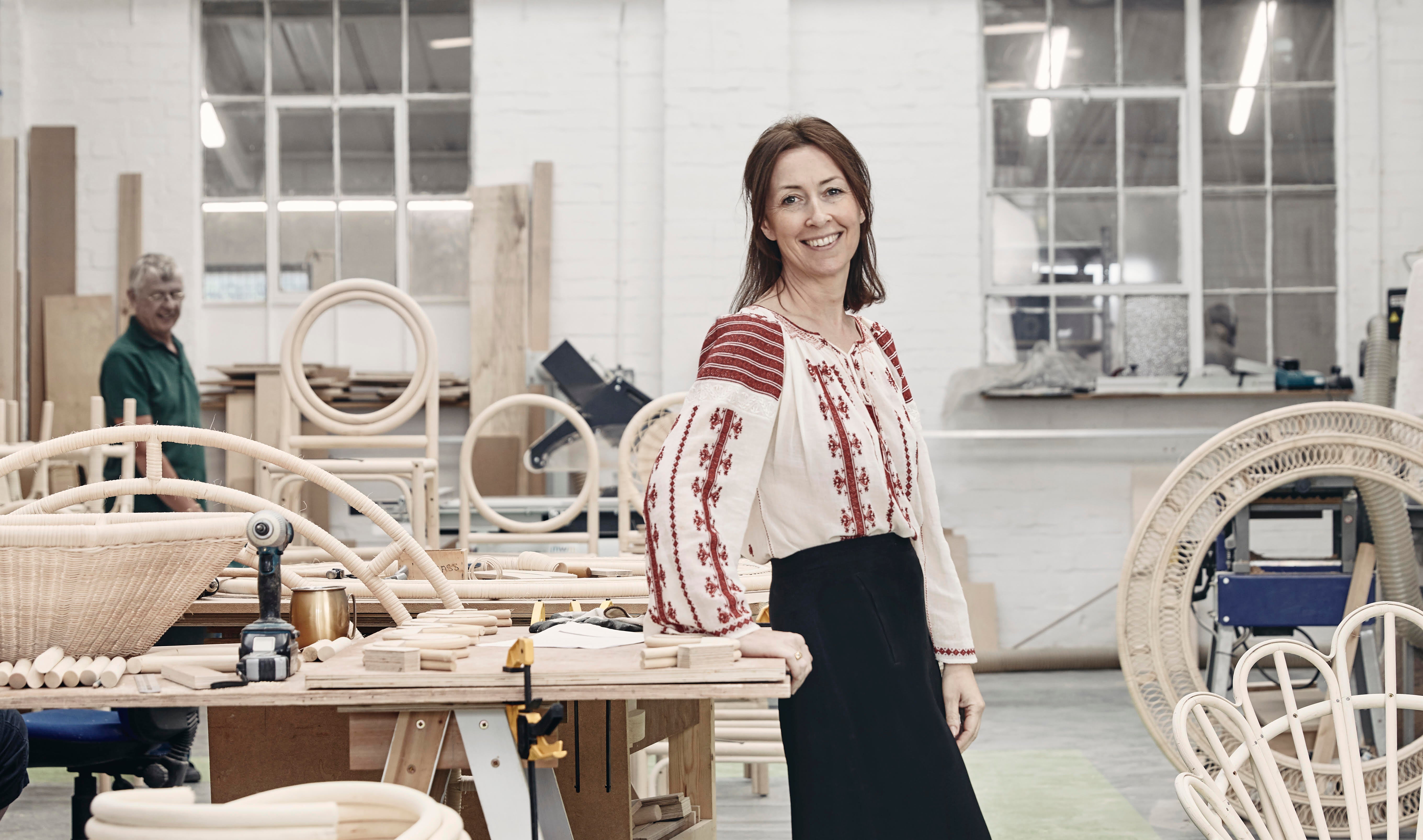Few and far between are the successful businesses dreamt up on road trips. Soane is one of them. In the late 1990s, inspired by a love of craft, Lulu Lytle journeyed around Britain looking for makers and artisans. Lytle, in her early 20s at the time, had done a stint in the antiques trade and was looking to put together a network of makers who could create the antiques of the future. It was a bold and potentially foolish idea. “[There were] many, many words of warning from people I really respect, who just said, ‘It's a really charming idea, but it’s not viable,’” recalls Lytle to host Dennis Scully on the latest episode of The Business of Home Podcast.
The doubters were wrong. Almost three decades later, Soane is a thriving business, and all of the product—furniture, fabrics and lighting alike—is all still made in the U.K., some of it by the very people Lytle met on that fateful trip. A favorite of designers ranging from the late Thierry Despont to John Saladino, Victoria Hagan and Rita Konig, Lytle’s creation has considerable reach now. So much so that she just opened a new showroom in New York and has plans to develop a “maker village” toward the goal of preserving the kind of skilled labor—in rattan, leather and brass—that has made Soane the success it is.
Crucial insight: One of the side effects of having an all-British supply chain is the realization that brands often play fast and loose when it comes to identifying where exactly their product is made. Unsurprisingly, Lytle is not a fan. “In the space that we are in—at the very, very top end—I do think people have the right to know exactly where that piece was made. Not just where it was finished, but every element of the process of making that piece: By whom, using what materials, right down to the sourcing of those materials. It's all too easy now with very glossy marketing, to give a broad-brush lovely finish to a product. But actually, when you dig deep, sometimes it's really unpalatable,” she says. “Luxury without full transparency simply is not luxury—it is as basic as that.”
Key quote: “I would never, ever want to take on private equity money,” says Lytle. “The moment that any business of this sort is in the hands of people who are demanding a quick return, you're in real trouble. We have a lot of principles that we would not consider overturning, and they just don't sit well with the private equity model. It will always be a family business.”
Listen to the show below. If you like what you hear, subscribe on Apple Podcasts or Spotify. This episode is sponsored by Loloi Rugs and BDDW.
The Thursday Show
BOH executive editor Fred Nicolaus joined host Dennis Scully to discuss the biggest news in the industry, including a new CEO for Design Manager, a pair of RH gallery openings, and an update on the Mitchell Gold + Bob Williams story. Later, designer Amber Lewis discussed her new book, Call It Home.
Listen to the show below. If you like what you hear, subscribe on Apple Podcasts or Spotify. This episode is sponsored by Loloi Rugs and Annie Selke.





























